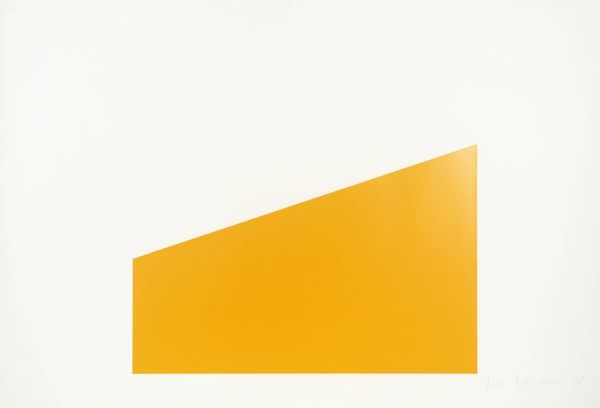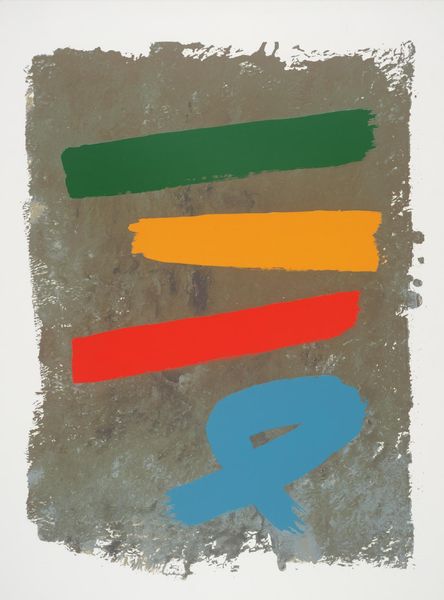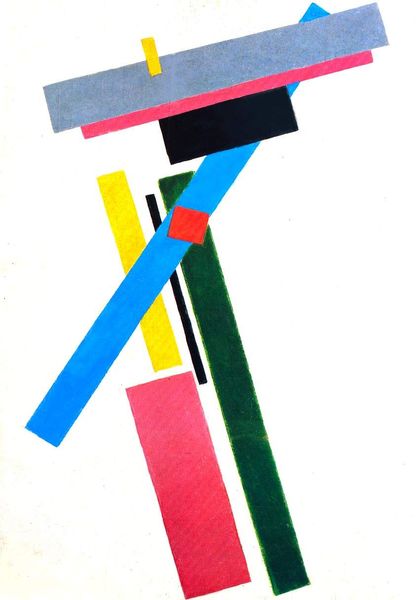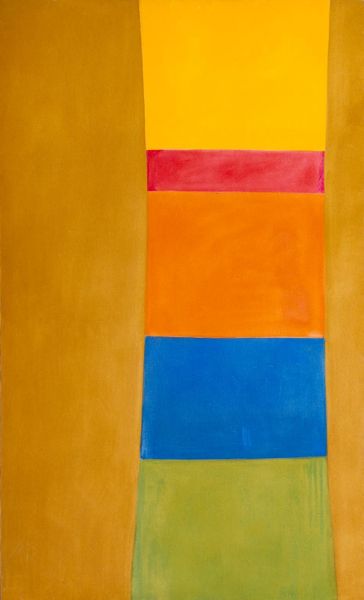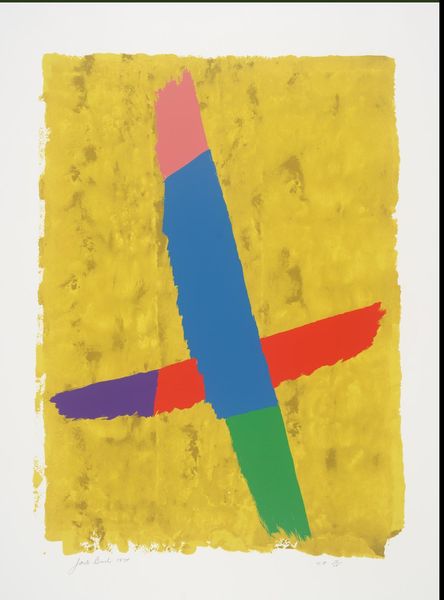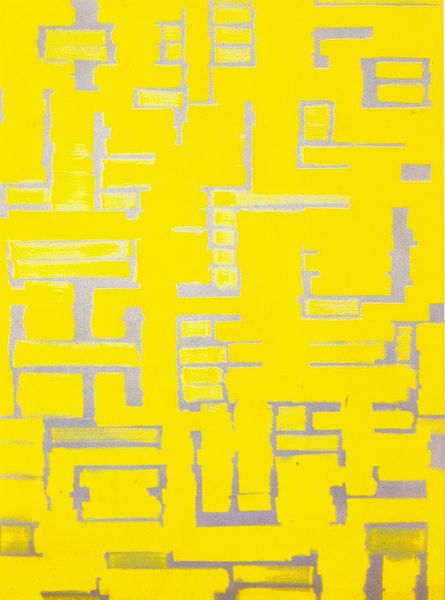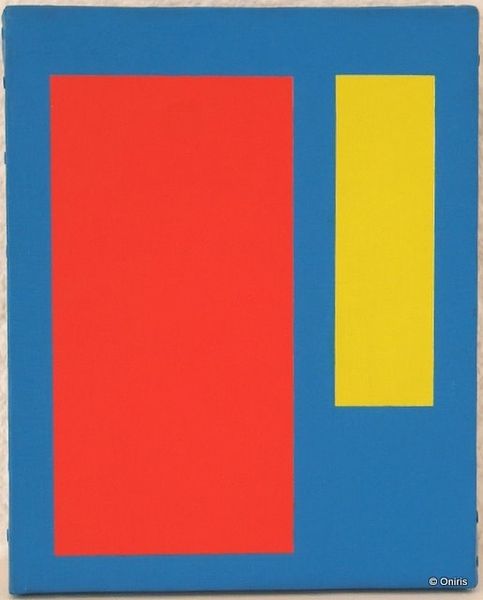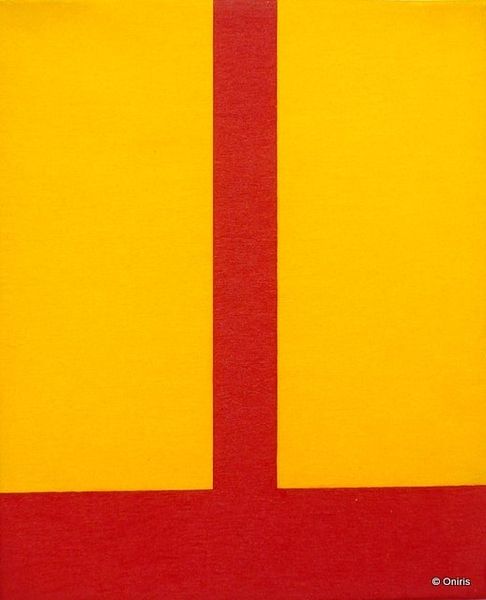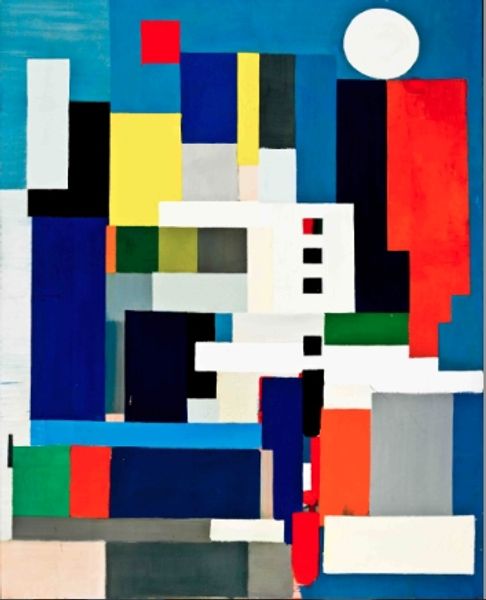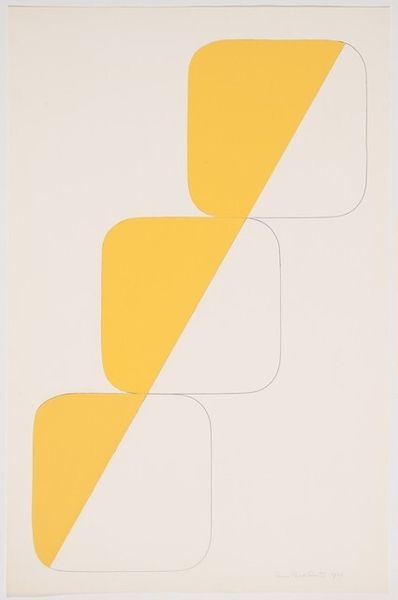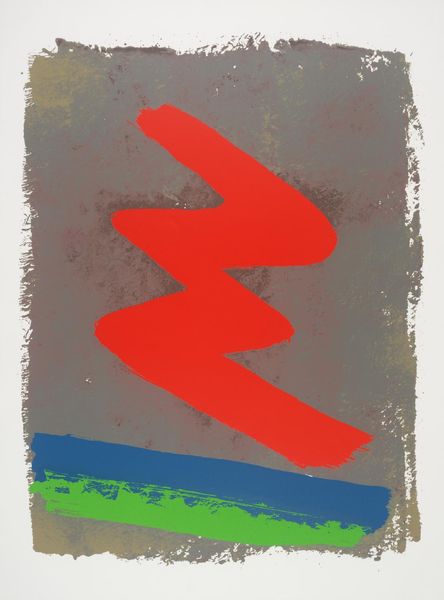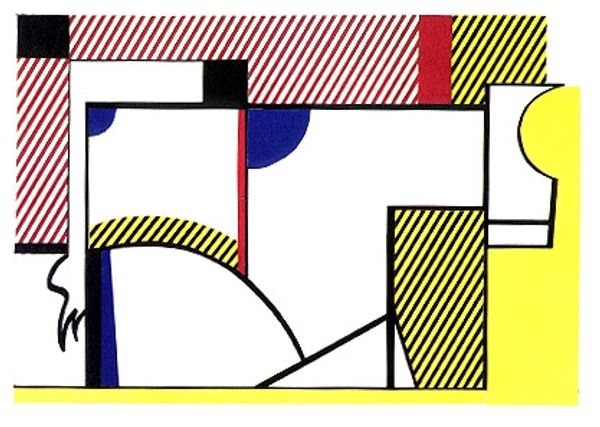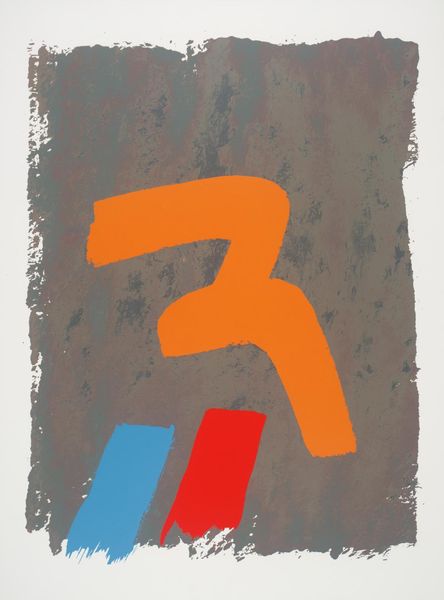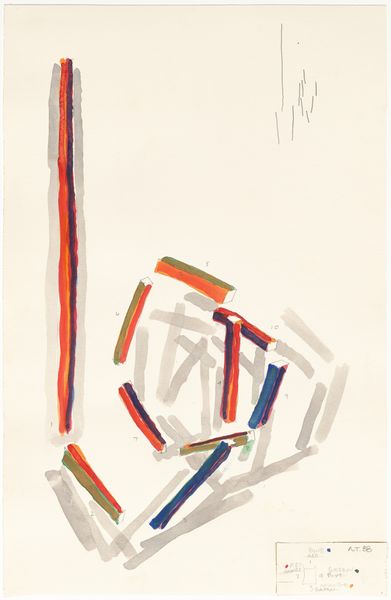
painting, oil-paint
#
painting
#
oil-paint
#
form
#
geometric
#
geometric-abstraction
#
abstraction
#
line
#
russian-avant-garde
#
suprematism
Dimensions: 71 x 45 cm
Copyright: Public domain
Curator: Ah, Kazimir Malevich's "Suprematism." I always feel a kind of stark wonder looking at it. Editor: Stark is right. The lines feel like cut-out strips floating in… nothingness? I see mostly oil-paint on canvas in what could be an exercise in simplicity and reduction, maybe as simple as a stage set for forms performing an elemental play. Curator: Precisely. Malevich stripped painting back to its core visual vocabulary. The how becomes almost more potent than the what. You know, there's no record of precisely when he created this painting, and in some ways, that adds to its sense of existing outside of time, or hovering at some place undefined. Editor: I can't help but think about the physical act of making. Did Malevich obsess over the specific tints of those colors? Were those clean lines precisely planned? It may well have taken intense physical and intellectual labor to reach the perceived “zero degree” of painting that we see here, or the "white on white" approach as with his best-known painting. And you wonder: were these materials available to just anyone at the time? I understand he had quite a specific vision for a utopian society in mind. Curator: Definitely. Malevich's radical gesture feels linked to those hopes for a totally new, unburdened world, as if one could float free of material reality in pursuit of pure feeling or thought. The very idea that you could, through abstraction, communicate the essence of sensation… it’s tremendously powerful. Editor: Though in some ways, for me at least, abstraction here throws material concerns into sharp relief. How paint is applied. The kind of brushstrokes chosen. What supports it, what limits its access. How are museums climate controlled and cared for and whose job is it? These elements contribute to an artistic and historical understanding that would be difficult for the everyday observer to perceive if abstraction was completely divested of purpose. Curator: And I love how your materialist perspective brings it back to earth. A needed balance, for sure. It is, after all, through interaction with tangible stuff that we even glimpse these intangible ideas. Editor: Exactly. It is through understanding those means of production and distribution that abstraction itself becomes materially possible. Thanks for helping me clarify this today!
Comments
No comments
Be the first to comment and join the conversation on the ultimate creative platform.
